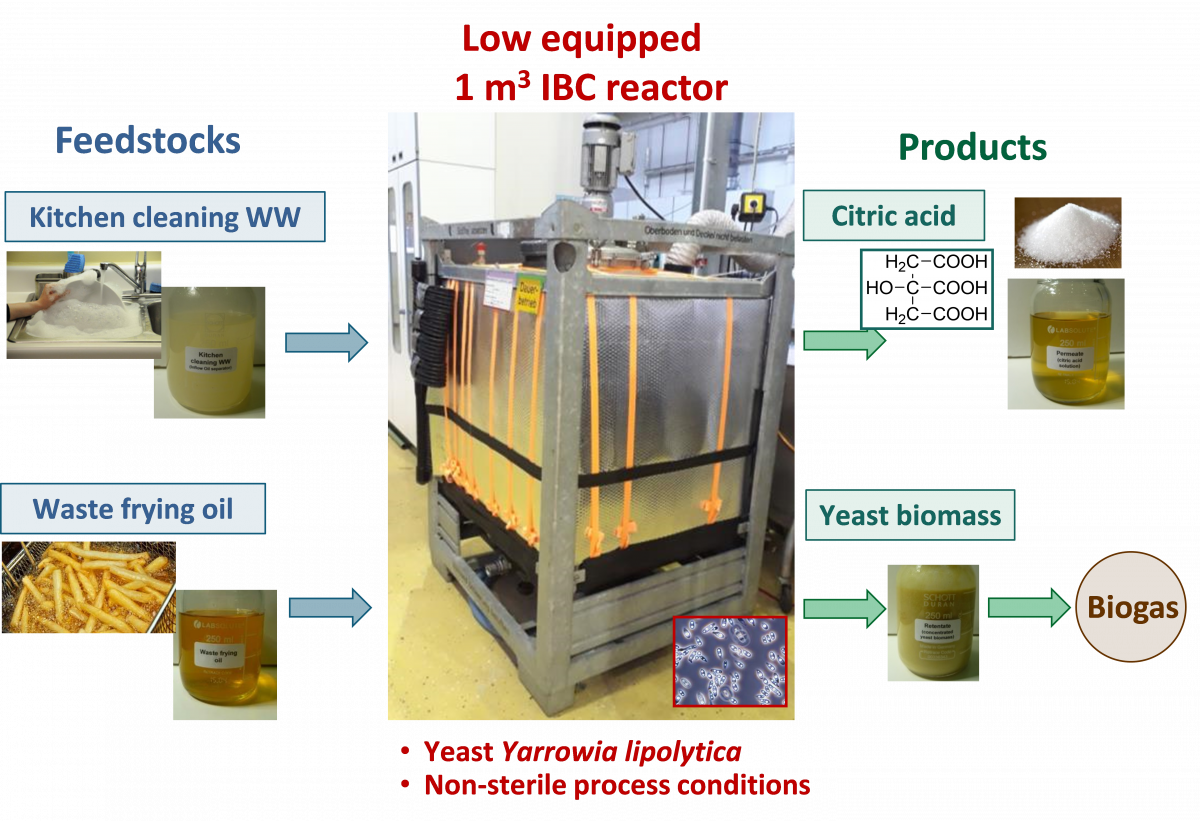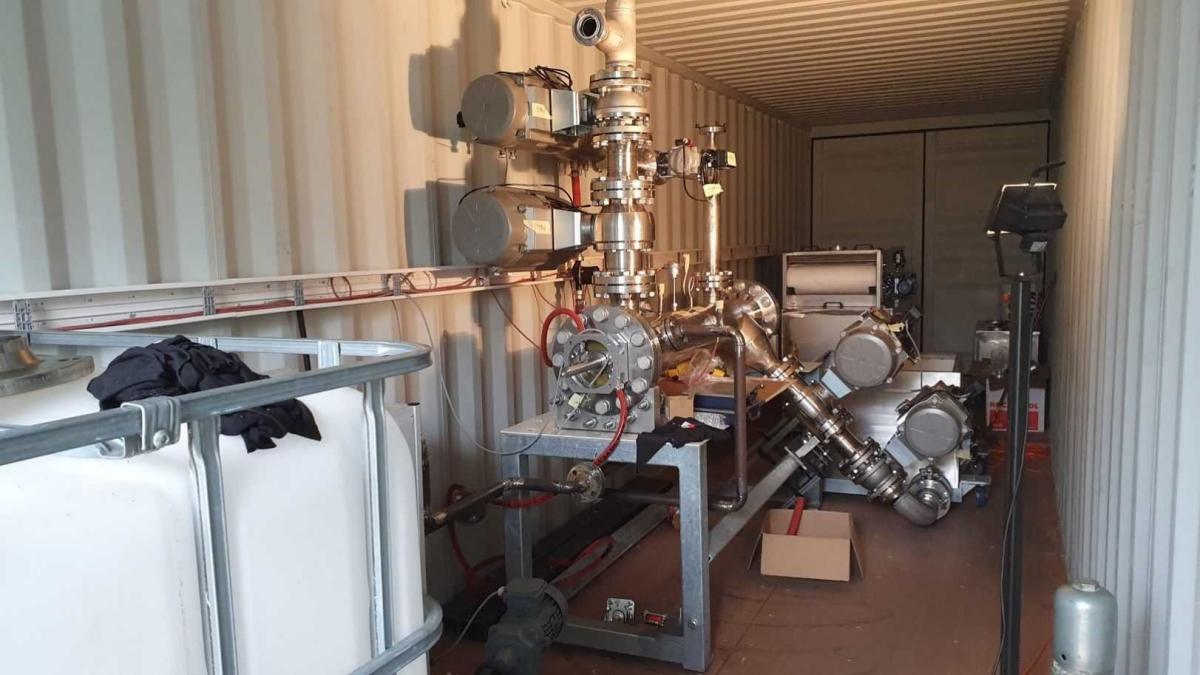Case-study 3 - Optimization of implemented technologies finalised!
All technologies in case study 3 for the treatment and valorization of waste water and waste from the food sector were successfully implemented, optimized and their long-term stability demonstrated.
For the first time, it is possible to produce citric acid almost completely by recycling from waste water and waste products. The yeast Yarrowia lipolytica, a bioprocess for the bulk chemical citric acid (CA) has been developed by the UFZ, using waste frying oil as a carbon-rich by-product and different types of wastewater e.g. kitchen cleaning discharge from a canteen proving. It is noteworthy in this context that the yeast process can be run under non-sterile conditions, and a PCT patent application has been submitted for this.
The yeast-based bioprocess achieves product concentrations of 100-120 kg CA/m3 and formation rates of 0.5 – 1.2 kg/m3/h.
Implementation of a decentralized concept for CA production was one focus of case study 3, where a conventional container type (IBC container) has been improved to serve as a bioreactor with a low level of additional equipment (fig. 1). Equipped only with aeration, a mixer, pH-regulation and a retrofitted cooling system, the non-sterile yeast-based CA bioprocess was successfully transferred to a 1 m3 demonstration reactor. The CA solutions produced here in technical quality can then be used for on-site consumption as cleaning agents or decalcifier, for example. This decentralized concept strengthens the circular economy on a local or regional scale.
The operation of anaerobic fermenters with residual yeast biomass from the CA bioprocess as the only carbon substrate succeeded under both mesophilic and thermophilic conditions. Under both process conditions, stable processes were achieved for the production of biogas, with a methane production rate > 0.5 m³ CH4 g/VS/d

Fig. 1. Decentralized Citric acid production at demo scale for on-site consumption ©UFZ
Renergie implemented the hydrothermal carbonization technology (HTC), a process which converts any kind of biomass into carbonized products. The degree of carbonization depends on process time, process temperature and process pressure.
Several samples of HTC biochar were produced, e.g. for energetic purposes reaching a heating value of up to 22 Mjoule per kg.
After the end of the project, the HTC technology will be marketed to companies working in the WW treatment sector.
HTC, a high efficient and CO2 neutral process offers a lot of solutions. Whether it is used in energy production, Phosphorous recovery or in agriculture, it can help in reducing the global warming effect.

Fig 2. Photo of the 50 L HTC installation © RENERGIE

















